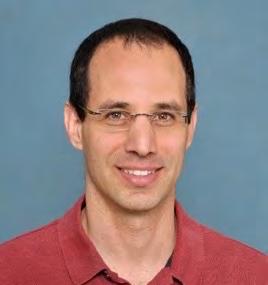
1 minute read
Development, Aging and Regeneration
Prof. Ronen Zaidel-Bar

Cytoskeletal regulation
A developing embryo taking shape, a heart pumping blood, and a wound closing itself all rely on mechanical forces to accomplish their important tasks. A special cellular machinery, the cell's skeleton, is responsible for generating these forces, but how this machinery is assembled at the right time and place in our bodies remains poorly https://www.zaidelbarlab.com/ understood. Prof. Zaidel Bar's group is using cutting edge genetics and live-imaging microscopy in human and nematode models to gain a "front row seat" view of what the cytoskeleton is doing inside an animal. A better understanding of cytoskeleton regulation is important to prevent birth defects and to treat numerous diseases, such as asthma, hypertension, and cancer metastasis.
Prof. Zaidel-Bar, PhD, is head of the Department of Cell and Developmental Biology at the School of Medicine and Vice Dean for Preclinical Research Innovation & Development of the Faculty of Medicine . He completed his Ph.D. in Molecular Cell Biology at the Weizmann Institute and post-doctoral training at the University of Wisconsin - Madison. He started his independent group at the Mechanobiology Institute, National University of Singapore, where he was awarded the National Research Foundation Fellowship, and seven years later he joined Tel Aviv University. Zaidel-Bar is a world leader in the field of cell and tissue mechanobiology.
Actin (green) and myosin (red) in the cortex of a C. elegans 1-cell embryo form a contractile belt that drives the first cell division. Wei-Yung Ding, ZaidelBar.



